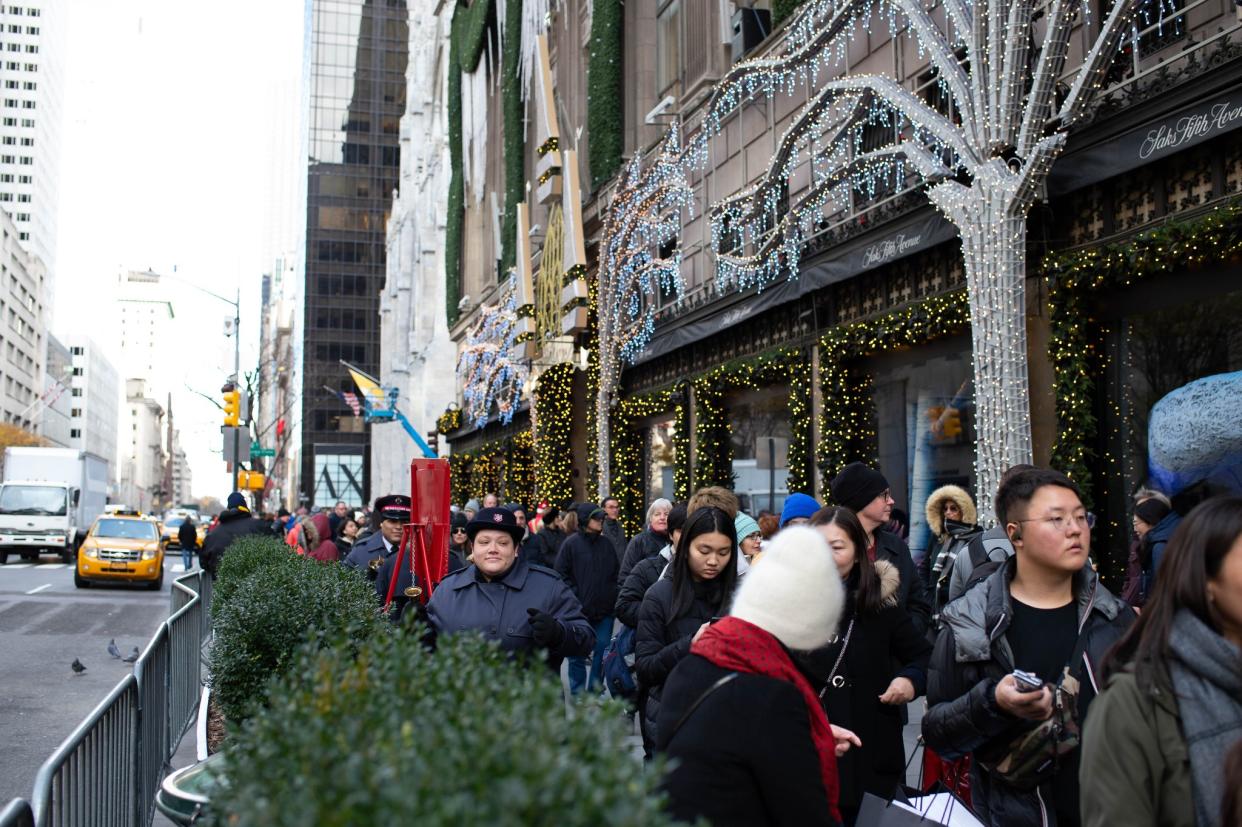How Holiday 2020 Plays Out

Aside from knowing that e-commerce won’t stop escalating and stealing business from stores, retailers don’t have a very clear vision of how holiday 2020 will unfold in the U.S.
The usual barometers for forecasting business can’t be relied upon due to the devastating pandemic and its impact on employment, store closings and reopenings, Wall Street and bankruptcies, not to mention the national angst over the presidential election.
While there’s understandable hesitancy about forecasting retail performance in the second half, store executives and industry analysts do paint a picture in terms of the timing of their holiday marketing and price promotions, and how Black Friday, Cyber Monday, and other pivotal shopping days during the fourth quarter could be different this year.
Based on opinions from experts, here’s how holiday 2020 is seen unfolding:
? Retailers including Best Buy Co. Inc., Kohl’s Corp., Target Corp. and Walmart Inc. will start to encourage holiday shopping earlier, in mid-October, rather than right after Halloween as widely seen in recent years, to ease shipping burdens from increased online ordering and get a jump on some of the competition.
? Flash sales will make a comeback online.
? Doorbusters at brick-and-mortar stores become reserved compared to past years, to avoid stampedes at opening hours and maintain social distancing. Fewer people will camp outside stores for first dibs on deals.
? There won’t be the sharp peaks and troughs in sale velocity as seen in past years. The usual lull in shopping that occurs after Black Friday weekend and Cyber Monday, and lasts for about two weeks, won’t be as noticeable.
? There will be less of the last-minute rush the week before Christmas due to the shift toward greater online shopping requiring consumers to order well in advance of Christmas so the gifts they buy arrive before the holiday.
? Target, Walmart and many other retailers have decided to stayed closed on Thanksgiving Day, which would shift some spending to Black Friday weekend and pre-Thanksgiving events. According to Kylee Magno, principle analyst at Astound Commerce, that could level the playing field somewhat and help retailers that never did open their doors on Thanksgiving.
? Key categories and items are expected to include home furnishings and decor; kitchen products; comfy clothes like loungewear, sweats, ath-leisure and T-shirts; home office equipment; technology; streaming services; patio furniture; do-it-yourself items, and puzzles and games. Fashion, particularly party dresses, eveningwear, workwear and tailored clothes, as well as luggage and travel-related items take a backseat.
? Shipping companies, the U.S. Postal Service, contact and fulfillment centers will be overtaxed, so it will be wise for consumers to order early. Same-day delivery options will increase to ease shipping burdens.
According to an August survey of 2,360 individuals conducted by RetailMeNot with SurveyMonkey, three out of five consumers are planning to spend the same amount — or more — than last year, and 35 percent report a willingness to try new brands this season.
In addition, 36 percent of those surveyed plan to spread purchases out over longer periods, and 31 percent plan to shop early to avoid shipping delays or inventory shortages. RetailMeNot is a web site for mobile coupons and codes, cash back offers and browser extensions, and SurveyMonkey is an online survey development company.
“Black Friday will have a totally different feel and experience,” said Magno of Astound, an agency that designs web sites and generates proprietary research. “Some people are going to participate, for a sense of normalcy, but there is still a little bit of apprehension about going into stores, even grocery stores.
“Shoppers are really going to go with the brands that protect their well-being and have the same values,” she added. “They’re not going to rush for a $5 television. If something like that is offered, it might have a negative effect by creating the perception of the retailer not caring about you. There is a fine balance here. REI stays closed on Black Friday and Thanksgiving. They’ve been doing that for five years and customers have really appreciated that [by showing] their loyalty. They could shop online, but orders wouldn’t be processed on those days.”
According to Krish Iyer, head of industry relations at ShipStation, a web-based shipping software firm, this year’s holiday season will be anything but predictable, and retailers must reevaluate strategies to ensure they’re meeting consumers where they are comfortable, and where their wallets are.
Despite the economic uncertainty, ShipStation data shows that nearly seven out of 10 Americans say they plan to spend just as much for the holidays this year as in previous years, with 63 percent of Americans saying they plan to do all of their holiday shopping online.
“We believe that strong availability of advertised products, utilizing omnichannel delivery options, and Thanksgiving closures are important strategies,” as stated in a research report from Cowen an investment banking and financial services firm. “Our take is that goods catering to a semi-permanent nesting lifestyle will be important traffic drivers — this includes home, electronics, comfort-driven apparel, kitchen, and outdoor-related goods. The new ‘hot item’ will likely be instead a ‘hot strategy’ of making your living space more comfortable and appealing.”
Sign up for WWD's Newsletter. For the latest news, follow us on Twitter, Facebook, and Instagram.
